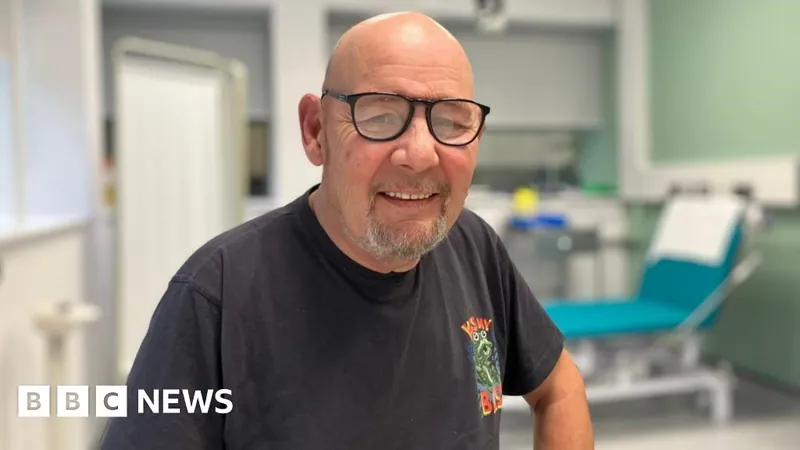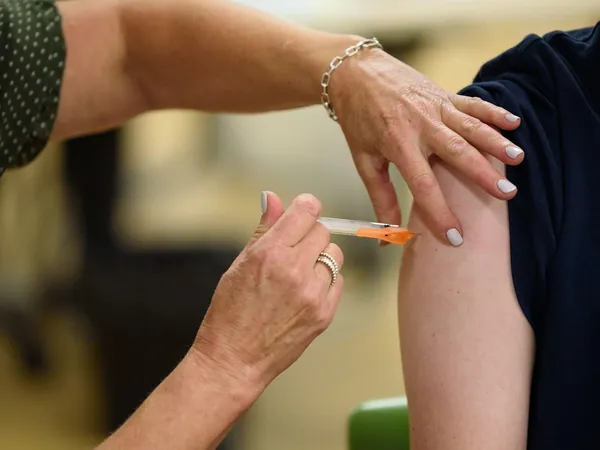
Breakthrough DNA Blood Test Offers New Hope for Lung Cancer Patients in Wales
2024-09-26
Author: Liam
In a groundbreaking development, a pioneering DNA blood test is set to fundamentally change the landscape of lung cancer diagnosis and treatment in Wales, offering new hope for thousands of patients. Phillip Marks, a 62-year-old from Penarth, Vale of Glamorgan, thought he wouldn’t see another birthday due to his deteriorating health caused by lung cancer. “They all thought I was going to kick the bucket, but I won the sweepstake down the golf club,” he recounted after receiving life-changing news.
Lung cancer, notorious for its late-stage diagnosis, remains the leading cause of cancer-related deaths in the UK, claiming the lives of around 1,900 people in Wales annually. This disease disproportionately affects disadvantaged communities, highlighting the urgent need for innovative diagnostic tools.
The new blood test, a "liquid biopsy," detects fragments of cancer DNA circulating in the bloodstream. Unlike traditional, invasive biopsies that often struggle to provide adequate samples, this quick and simple test allows for a quicker diagnosis, thereby unlocking more effective treatment options. As cancer cells divide, they shed tiny DNA fragments, which are then analyzed to understand the cancer's genetic makeup, enabling doctors to tailor treatments accordingly.
Mr. Marks, who had already been diagnosed with incurable lung cancer, experienced a swift turnaround once the new test revealed he could respond well to targeted therapy. “From not being able to eat half a plate of pasta, I woke up one morning and I said to my partner, ‘how about a carvery?’ She just burst into tears,” he said, recalling his remarkable recovery.
The momentum behind this initiative can be attributed in part to Craig Maxwell, a lung cancer survivor who turned his struggle into a mission to aid others facing similar challenges. Following a harrowing three-month wait for a diagnosis of inoperable stage 4 non-smoking lung and bone cancer, Maxwell was determined to find ways to expedite the diagnostic process. He spearheaded a fundraising campaign that exceeded expectations, securing nearly £1.5 million for the QuicDNA project, destined to support the rollout of the new test.
“With the extra funding, experts aim to explore how liquid biopsies might also detect and screen for other types of cancer,” Maxwell stated, emphasizing the project’s potential far beyond lung cancer alone. However, experts caution that significant hurdles remain. NHS cancer survival rates in Wales trail behind many developed nations, with delays in diagnosis and treatment beginning to alarm health professionals.
Prof. Tom Crosby, clinical director of cancer in Wales, warned, “Patients are waiting too long from the point they are told they may have cancer to starting treatment… The demand is outstripping our capacity.”
Despite these challenges, the introduction of this blood test is seen as a significant advancement in the fight against cancer, promising to offer patients a fighting chance at a timely diagnosis and personalized treatment plans. As Wales takes strides to overcome its healthcare challenges, this innovation might just be the beacon of hope that many lung cancer patients need.









 Brasil (PT)
Brasil (PT)
 Canada (EN)
Canada (EN)
 Chile (ES)
Chile (ES)
 España (ES)
España (ES)
 France (FR)
France (FR)
 Hong Kong (EN)
Hong Kong (EN)
 Italia (IT)
Italia (IT)
 日本 (JA)
日本 (JA)
 Magyarország (HU)
Magyarország (HU)
 Norge (NO)
Norge (NO)
 Polska (PL)
Polska (PL)
 Schweiz (DE)
Schweiz (DE)
 Singapore (EN)
Singapore (EN)
 Sverige (SV)
Sverige (SV)
 Suomi (FI)
Suomi (FI)
 Türkiye (TR)
Türkiye (TR)